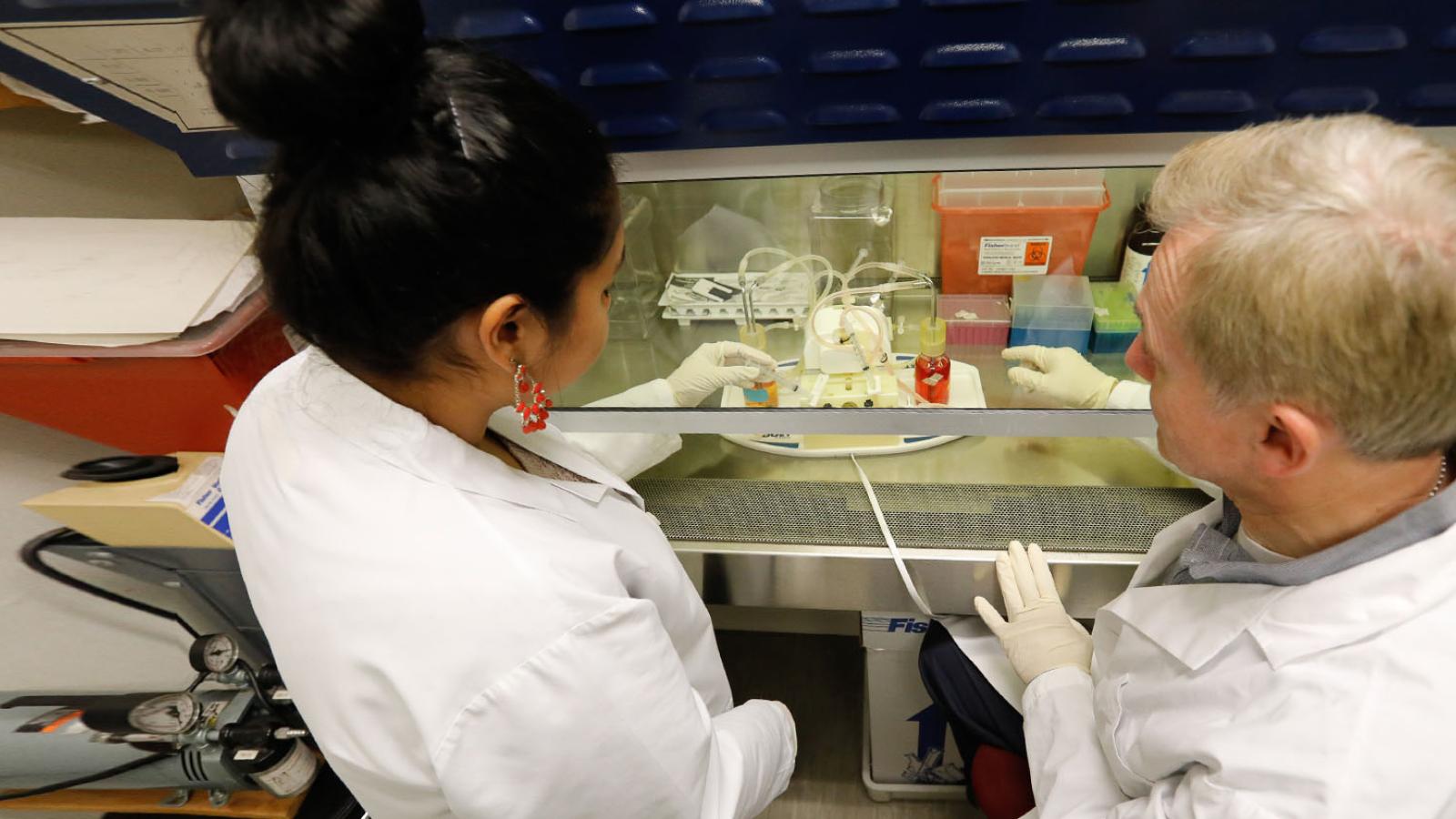Nigel Yarlett, PhD
Program Director, MS in BMB
Distinguished Professor
Email: nyarlett@pace.edu
Research: Biochemistry and molecular biology of parasitic protozoa, particularly Cryptosporidia sp., and Human African Trypanosomes (HAT). My research has resulted in the development of a new class of compound, the oxaboroles, to treat HAT that is currently in phase II clinical trials in Africa. I am also developing a novel culture system to facilitate the screening of novel compounds for the treatment of cryptosporidiosis.
